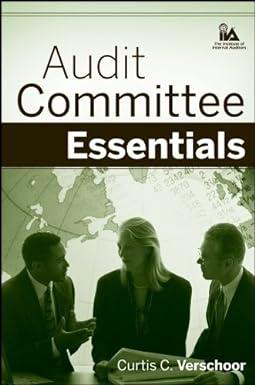Question
Katie has just landed a two-year contract for her dream job at Superior Actuaries (SA). But theres a catch: She must pass two of her
Katie has just landed a two-year contract for her dream job at Superior Actuaries (SA). But theres a catch: She must pass two of her actuarial e in the first two years to stay employed beyond year 2. (Actuaries typically pass 7-10 e over a career.) She can take one or two e per year (she must take at least one per year), but taking two in a year is more difficult, and it reduces her pass rate on individual e because her preparation time is spread thinner. E get increasingly more difficult, i.e., E 1 is the easiest, E 2 is a bit harder, etc. The maximum number of exams she could pass in two years is four (E 1, E 2, E 3, and E 4).
Her starting base salary is $100,000. Every time she passes an e (in either year), she gets an immediate $15,000 bonus, regardless of her future employment status. Additionally, each e she passes in her first year increases her second-year salary by $10,000 (this salary bump does not apply to any e passed in year 2). If she passes the required two e in her first two years, she estimates the present value of her future earnings at SA (year 3 and beyond) to be $1,000,000. If she does not pass at least two e in her first two years, she is released at the end of year 2 and receives no future earnings from SA. Assume
If Katie takes two e in any given year and passes only one, it must be the easier e.
Taking an e more than once does not change her pass rate.
The discount rate for all values is 0 (i.e., treat all $ values in the problem as present values).
E are taken in order. So, for example, if Katie passes E 1 in year 1 and opts to take two e in year 2, the e are E 2 and E 3.
The probability of passing an e depends on whether Katie is taking one e per year or two. The table below summarizes the probabilities:
| Take One E in a Year (year 1 or year 2) | Pass Probability | Take Two E in a Year (year 1 or year 2) | Prob Pass Easier E (Fail Harder E) | Prob Pass Both |
| E 1 | 0.9 | E 1 & E 2 | 0.60 | 0.25 |
| E 2 | 0.75 | E 2 & E 3 | 0.5 | 0.15 |
| E 3 | 0.7 | E 3 & e 4 | 0.4 | 0.1 |
Using a decision tree, determine how Katie can maximize her total (long run) earnings at SA. Ive drawn part of the tree to help you. This part is when Katie decides to take only one e (E 1) in year 1 of her contract.
Draw the remaining part of the tree, roll back the tree, and determine an optimal strategy. Incorporate my part of the tree in your decision strategy, but you do not need to redraw the part above.
Step by Step Solution
There are 3 Steps involved in it
Step: 1

Get Instant Access to Expert-Tailored Solutions
See step-by-step solutions with expert insights and AI powered tools for academic success
Step: 2

Step: 3

Ace Your Homework with AI
Get the answers you need in no time with our AI-driven, step-by-step assistance
Get Started


